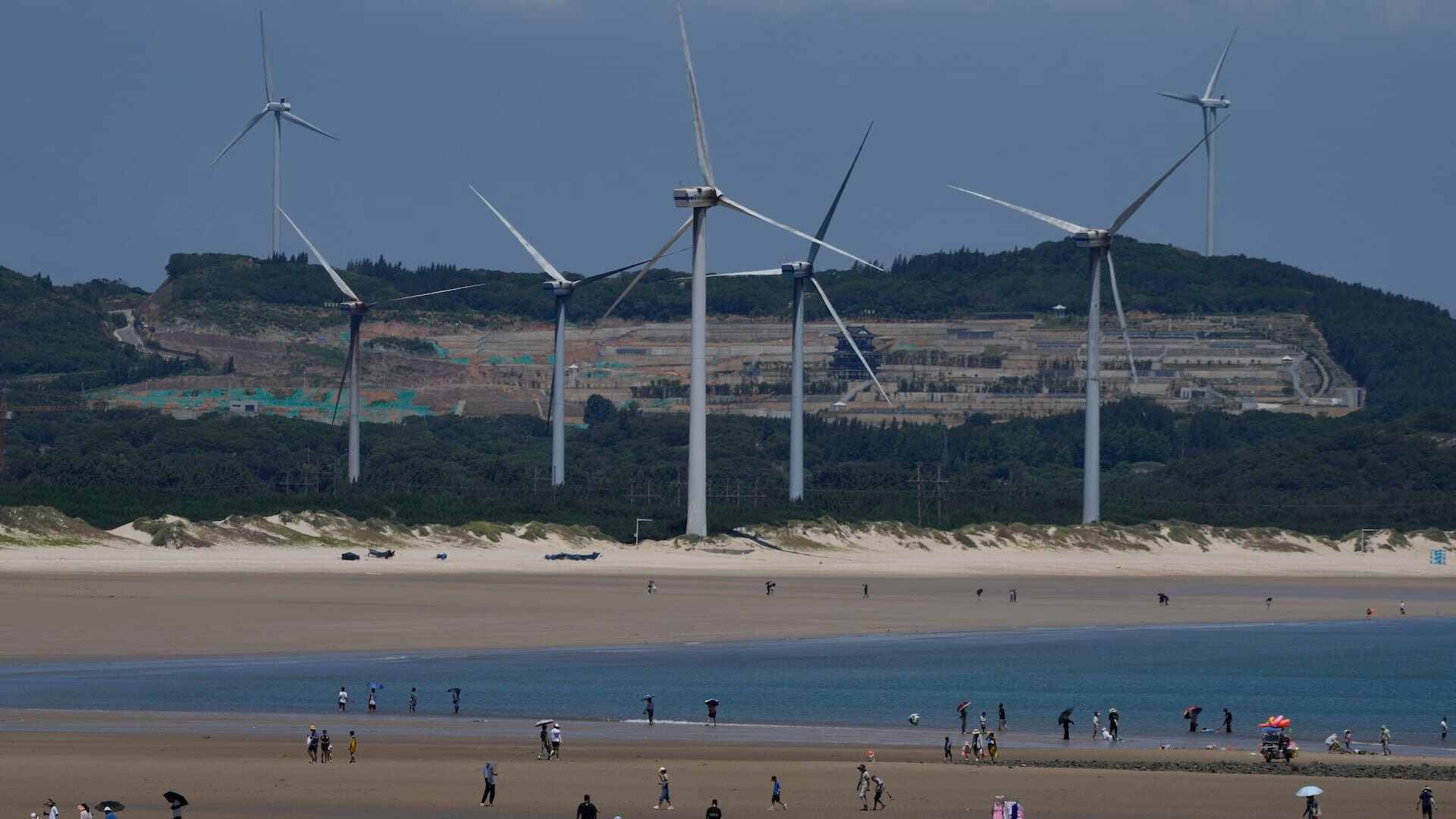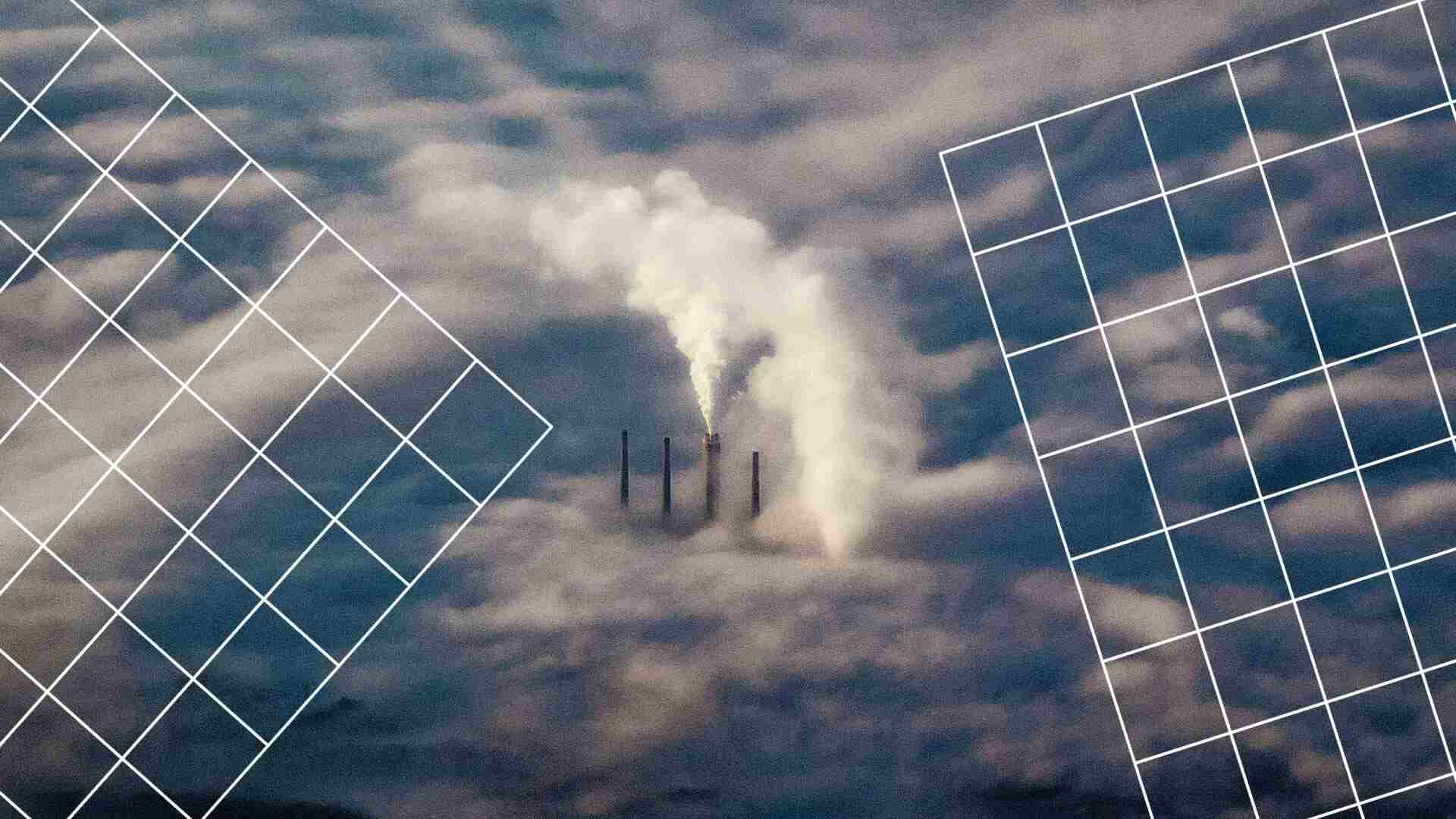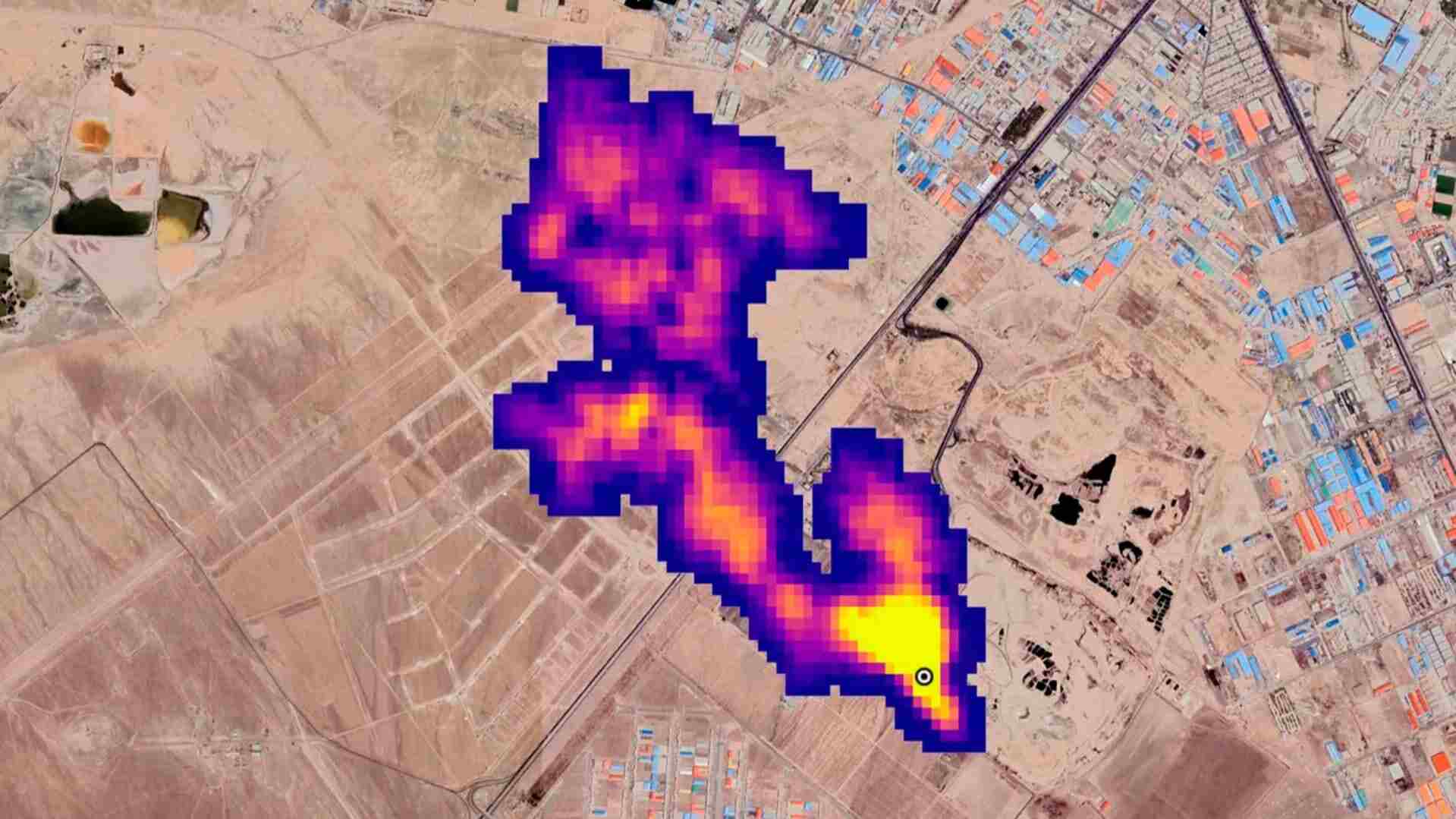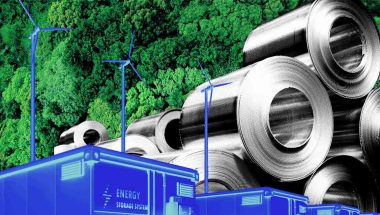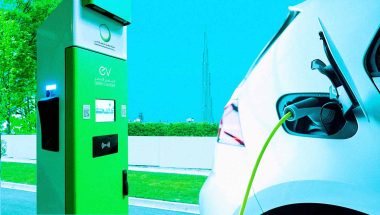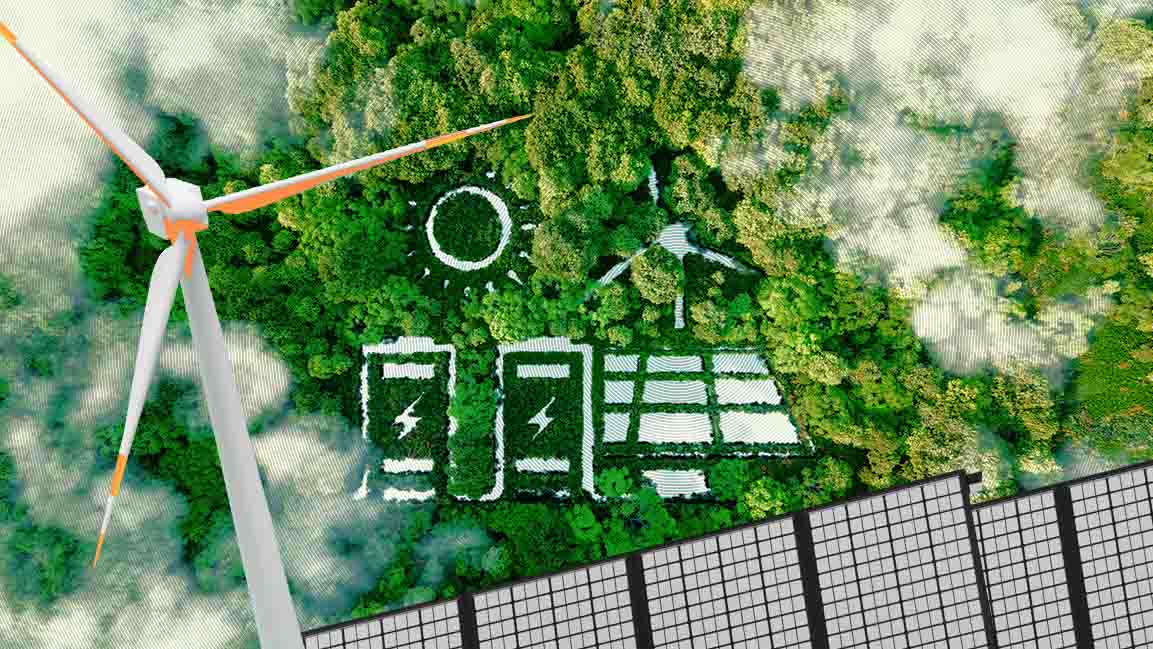- | 2:29 pm
In the desert, these sprawling greenhouses help decarbonize heavy industry
The world’s largest solar thermal plant will help cut emissions in Saudi Arabia.

In the desert on the edges of the industrial Saudi Arabian town of Ras Al-Khair, a sprawling section of sand will eventually be filled with dozens of greenhouses. The greenhouses—covering 7 square kilometers, or an area larger than London’s Gatwick Airport—aren’t for growing food. Instead, they’ll help decarbonize the energy-intensive process of making aluminum.
Right now, the industry runs on fossil fuels. “Coal is being burned to make aluminum which is going to wind up in your cell phone and your computer and your car,” says Rod MacGregor, CEO and founder of GlassPoint, the company that plans to build the new system, which will use solar thermal technology in greenhouses to make sunlight-powered steam. “Often, these products have hidden embedded emissions we’re not aware of. It’s a huge amount of CO2 that we’re putting in the atmosphere.”
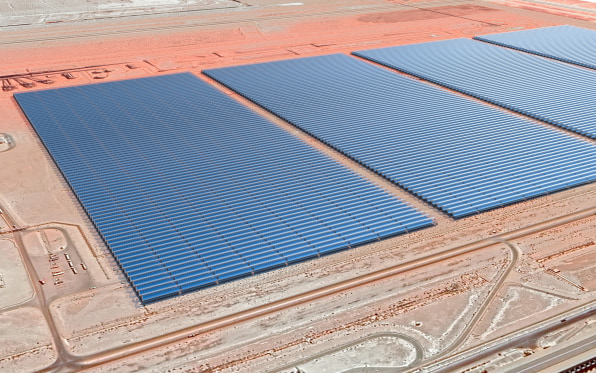
[Photo: GlassPoint]
The company uses large curved mirrors that hang inside greenhouses and focus sunlight on pipes, heating up the water inside so it boils and produces steam.“When people hear solar, you naturally think solar panels making electricity,” MacGregor says. “But in this particular case, when the end-user needs heat, it’s much more efficient to go straight from sunlight to heat.” Steam is a key part of the process of refining bauxite, the material used in the first step of making aluminum; most refineries use coal to boil water for the steam.
In Saudi Arabia, GlassPoint is partnering with the Saudi Arabian Mining Company, or Ma’aden, to begin planning a new 1,500-megawatt solar thermal facility at the company’s refinery. The refinery uses gas to make steam now, but will cut its carbon footprint in half by making the switch to solar energy, reducing more than 600,000 tons of CO2 a year.
The company also owns an adjacent smelting plant, where the refined bauxite, or alumina, is turned into aluminum; it’s simultaneously working on ways to decarbonize that process.
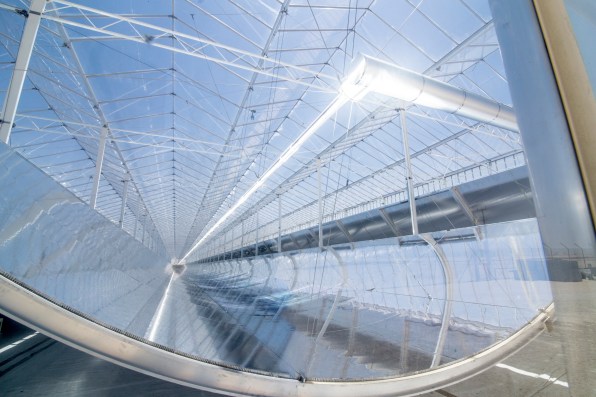
[Photo: GlassPoint]
The industry as a whole is beginning to transform. Apple has been working with two other large aluminum suppliers, Rio Tinto and Alcoa, to demonstrate a new zero-carbon smelting process that releases oxygen instead of CO2. (The aluminum is being used in the newest iPhone SE). While GlassPoint’s technology isn’t designed for extremely high-heat applications like smelting, it can be used in other factories that rely on steam, from food or lithium producers to paper mills.
“If you look at the industry as a category, it’s actually the largest consumer of energy in the world,” MacGregor says. “It’s bigger than transportation. And it’s bigger than residential. And 75% of all the energy that industry uses is in the form of heat.”
Other companies are working on different clean energy tech for heavy industry, including green hydrogen. But MacGregor says that the simple physics of the solar thermal system make it less expensive. The greenhouses protect the mirrors from wind, which means that the components can be lighter weight and cheaper than a system that sits outside. For now, it’s still more expensive than fossil fuels, but as refineries face new pressures—from brands, investors, and new regulations, like a carbon tax on aluminum in the EU—they’re planning to change.
GlassPoint already has a handful of smaller facilities in operation. (Ironically, the others are helping improve the carbon footprint of oil and gas production.) Ma’aden is an early mover in the aluminum industry, with tentative plans for the new facility to begin construction in 2024.
“In the beginning, we would go to an industrial complex or user and say, ‘We can help you decarbonize,’ and they would ask, ‘Why would we want to do that?’” MacGregor says. “Nobody says that anymore.”












